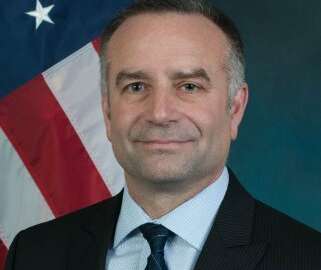
Some agencies need jumpstart for FITARA requirements
A new GAO report shows the government middling along, with a few glaring problems, in implementing FITARA.
Subscribe to Federal Drive’s daily audio interviews on iTunes or PodcastOne.
Federal agencies are embracing FITARA legislation slower than the Government Accountability Office imagined, according to a new report.
The Federal Information Technology Acquisition Reform Act, passed in 2014, not only gave agency chief information officers more control over IT investments but also required the Office of Management and Budget to create a comprehensive list of agency data centers.
“It’s agency self-reporting,” David Powner, GAO director of IT issues, said on Federal Drive with Tom Temin. “This latest FITARA report from GAO kind of goes beyond. You have been looking at some of these issues since before FITARA [like] consolidating data centers, the general issue of transparency and incremental or agile development.”
Since 2010, the GAO has made about 800 recommendations to federal agencies outlining areas that need to be improved to run more efficiently. A Nov. 17 report said only 56 percent of those suggestions have been implemented.
Four suggestions the report outlined that still need the most work are:
- Consolidation of data centers (84 of 160 recommendations are still open)
- Enhancing transparency (25 of 47 recommendations are still open)
- Implementing incremental development (34 of 42 recommendations are still open)
- Managing software licenses (112 of 136 recommendations are still open)
“I think we seek really good progress in the incremental development area to be positive here, where there’s more agencies planning incrementally,” Powner said. “The two areas that we see most room for improvement are one on software licensing, and then also too in the data center area.”
At least 17 agencies have yet to develop a software licensing inventory, he said. Only five government agencies are embracing the recommendations. Powner said 19 agencies still need to get to work.
Two years after FITARA was passed, the Making Electronic Government Accountable By Yielding Tangible Efficiencies (Megabyte) Act was introduced to more clearly identify OMB’s role for managing software licenses and to require CIOs to establish inventories in order to make cost-effective decisions and provide training.
The agencies that received a good grade on software licensing found a way to save money and consolidate licenses. Powner said this area should have received more attention from the beginning.
“The good news here though is that the agencies that we’ve asked, it’s not like they’re not doing anything,” Powner said. “They’re working on inventories.”
Cloud services is an issue that often arises when speaking about information technology. Agencies could be using software licenses through virtual machines, and these may not be as easy to detect or count. Powner also said some licenses could be counted more than once because of their variety of functions.
Despite some issues, the cloud hasn’t necessarily been against the GAO recommendations or the role of OMB. In fact, some agencies have found optimization too difficult and found new ways to host data more efficiently.
“I think from a cloud perspective, where we see good progress is, you know, the data center area where we have infrastructure as a service and we’re actually hosting more things,” Powner said. “There’s a couple agencies that are really out of the data center business. They have no agency-owned data centers. They’ve completed outsourced or gone to cloud services.”
Over 4,000 data centers have been consolidated or combined since 2010. More than 1,000 data centers still remain. Powner said this helps agencies to hand over the data to someone that can manage it more effectively. However, data center optimization and consolidation have not stopped completely.
“Some of the things that we’re attempting to do with these departments and agencies … are inherently risky given the size and complexity,” Posner said. “We are starting to see a little more progress in terms of the acknowledgement of risk.”
While some agencies have received less than stellar grades on their FITARA requirements, Posner said agencies have expressed intention to commit to a February 2018 deadline.
Copyright © 2025 Federal News Network. All rights reserved. This website is not intended for users located within the European Economic Area.
Steff Thomas is a digital editor at Federal News Network.





